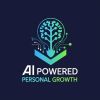Artificial intelligence (AI) is no longer just a buzzword, it’s shaping the future of work. From healthcare to finance and education to marketing, AI is transforming industries across the globe. With automation and smart systems becoming part of daily life, many people worry about job security. But here’s the good news: AI is also creating exciting new career paths.
As we move into 2025, some jobs will stand out as “future-proof” because they blend human creativity, critical thinking, and AI technology. In this article, we explore seven such career paths where AI is not a threat, but a powerful ally.
💻 AI Ethics Specialist: Guiding Responsible Innovation
As AI systems become more common, ethical questions grow louder. Companies, governments, and organizations need experts who can guide the responsible development and use of AI. This is where the role of an AI Ethics Specialist comes in.
These professionals make sure AI tools are fair, transparent, and free of bias. They help design policies that protect users, ensure privacy, and respect human rights. With AI making decisions in areas like hiring, healthcare, and finance, ethical oversight is crucial. In 2025, demand for these specialists will continue to rise as businesses face growing public and regulatory pressure.

🏥 AI Healthcare Analyst: Improving Patient Outcomes
Healthcare is one of the biggest areas where AI is making a difference. AI Healthcare Analysts help hospitals and medical centers use data to improve patient care. They work with systems that analyze medical records, predict disease risks, and even suggest treatments.
These experts translate complex AI insights into action plans for doctors and nurses. By combining medical knowledge with AI tools, they help improve diagnoses, cut costs, and save lives. As healthcare systems face pressure to become more efficient, this role will stay in high demand.
📈 Data Scientist: Turning Data into Gold
Data has often been called the “new oil,” and data scientists are the people who know how to refine it. These professionals work across industries, using AI tools to make sense of massive datasets. They help companies understand customer behavior, predict market trends, and improve products or services.
A data scientist’s job isn’t just about numbers. It also involves asking the right questions, designing experiments, and communicating findings in simple terms. As AI continues to grow, data scientists will play a central role in making sure businesses stay competitive.
🎨 AI Product Designer: Crafting Human-Friendly Tools
AI tools are powerful, but they need to be easy for people to use. This is where AI Product Designers come in. These professionals work at the intersection of design, technology, and psychology. They ensure that AI-powered products are not only functional but also enjoyable and intuitive.
AI Product Designers focus on the user experience. They work closely with engineers and researchers to create products that solve real problems. As more companies launch AI tools, these designers will be key in shaping how we interact with technology every day.

🔍 AI Trainer: Teaching Machines to Understand
For AI systems to work well, they need good training data. AI Trainers are the people who prepare and label that data, helping machines learn to recognize patterns, objects, or language. This role involves working with images, texts, audio, or video to “teach” AI models how to understand the world.
Even as AI becomes more advanced, human trainers are still essential. They help improve accuracy, correct errors, and handle tricky cases where machines struggle. In 2025, the demand for AI Trainers will continue, especially as new applications for AI emerge.
⚙️ Robotic Process Automation (RPA) Developer
Many businesses are turning to robotic process automation (RPA) to handle repetitive tasks like data entry, billing, or customer service. RPA Developers design, build, and maintain these automation tools. They use AI to create software robots that mimic human actions, improving speed and accuracy.
This job requires a mix of technical skills and business knowledge. RPA Developers need to understand a company’s workflows and figure out how to automate them. As organizations look to save time and reduce costs, RPA will become an even more important part of daily operations.
📚 AI Educator: Preparing the Workforce
As AI reshapes industries, workers need new skills to keep up. AI Educators play a critical role in helping people understand and work alongside these technologies. They create training programs, design workshops, and develop learning materials that make AI accessible to everyone.
Whether it’s teaching coding basics, explaining machine learning, or helping teams adopt AI tools, AI Educators are on the frontlines of the future of work. In 2025, demand for this role will grow as companies invest more in workforce development.
🌟 Why These Jobs Are Future-Proof
What makes these jobs future-proof is their blend of technical skill and human insight. While AI can handle many tasks, it still needs people to guide, train, and improve it. Jobs that require creativity, ethical judgment, emotional intelligence, or complex problem-solving are much harder to automate.
By focusing on roles where humans and AI work together, professionals can build careers that are not only secure but also exciting and meaningful. It’s also worth noting that many of these jobs offer opportunities across industries, giving workers flexibility and choice.

🌍 How to Prepare for an AI-Powered Career
If you’re interested in entering one of these fields, the first step is to build a strong foundation in both technical and soft skills. Learning programming languages, data analysis, or machine learning can open doors to technical roles. At the same time, developing communication, critical thinking, and creativity will make you stand out.
Many online platforms now offer free or affordable courses in AI-related subjects. Networking with professionals, attending workshops, or joining AI communities can also help you stay ahead. Remember, curiosity and a willingness to learn are your biggest assets in the fast-changing AI landscape.
🚀 Final Thoughts: Embrace the Future with Confidence
The rise of AI doesn’t have to be a threat to your career—it can be an opportunity. By understanding where AI is heading and preparing yourself for roles that complement it, you can future-proof your career and thrive in the years ahead.
The seven jobs discussed in this article highlight the many ways AI is creating new opportunities. Whether you’re just starting or looking to switch paths, now is the perfect time to explore AI-powered careers. Embrace the change, invest in your skills, and step confidently into the future of work.


